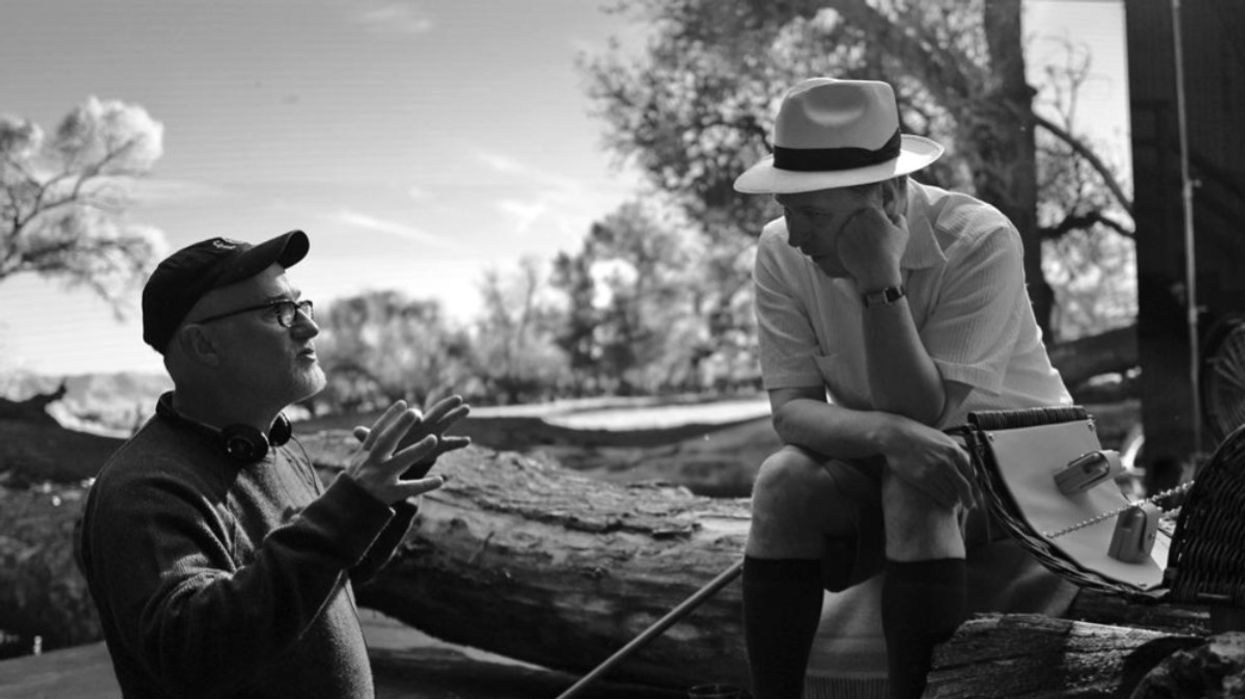Authorship and Obsession: The 'Mank' Ending Explained
What really happened during the Mank ending? We explain.

By now I am sure you've drunk the black and white Kool-Aid and watched the new David Fincher movie, Mank, on Netflix. It's a movie about complicated emotions and the pain of being creative. It tackles many themes, including the trials it takes to create your best work.
It's a movie that will stick with you for a long time, especially the ending.
Today I wanted to explain the Mank ending, talk about the deeper layers of the film, and just chat about the burden of creation, obsession, and authorship.
Check out this video from Think Story, and let's talk after the jump.
Authorship and Obsession: The Mank Ending Explained
There are lots of movies about writers out there. They often deal with deadlines, mistreatment, and inspiration, but I don't think any of them deal with authorship the way Mank does. Mank is the story of writing Citizen Kane.
We follow Herman Mankiewicz from a car wreck to the Academy Awards, as we cut through the moments in his life that inspired the work and how he's treated as he hurries to finish the first draft.
As you know, the final script was directed by Orson Welles, who shares screen credit with Mank. Welles would go on to be known as an auteur, or the true "author" of the film. Mank would drink himself to death only a decade later.
But what does the end of the movie have to say about all of this?
Mank ends at the Academy Awards as Herman delivers his acceptance speech for the Kane Oscar. He says, "You ask me what my acceptance speech might have been. Well, here goes. I am very happy to accept this award in the manner in which the screenplay was written. Which is to say, in the absence of Orson Welles."
This is a snarky way of saying he did the work, but how did we get here?

We know from some controversial points of view that Welles and Mank went back and forth on the script before the movie came out. There were a lot of questions about who deserved what when it came to credit, with Welles saying Mank did deserve his credit on it.
But the end of Mank is actually about the summation of suffering. About how much Mank understood the world, and how, in the end, it drove him to drink harder, which ultimately killed him.
In the movie, we see how Mank came to understand William Randolph Hearst. He saw him go from a rich man with morals to an old miser, surrounded by misers, willing to lie, cheat, and steal to get what he wanted. Mank was here for all of this and couldn't stop any of it.
Things happen in this movie that ultimately lead to Mank's friend's suicide, and he knows he's powerless to stop Hearst in all this. The world will turn out however Hearst wants it to because he controls the way people get information.
Mank gets hammered and wrecks his relationship with Hearst, but he doesn't lie down and do nothing. Instead, he decides to become a man of morals and writes Citizen Kane to take down Hearst. This was Mank's obsession and then eventually became Welles' obsession as well.
The difference is that Welles never lost anything to tell this story. It was not personal for him. Welles found empathy in Kane, but Mank saw no empathy in his actions. He saw soulless evil.
Through collaboration, we got a masterpiece. One that both men wanted to take credit for...

But the movie also asks the question... who risked more to tell this story? Who lost more?
For Welles, this movie launched him into the stratosphere. He gained everything from it.
For Mank, his friend was dead, his friendships were ruined, and they almost kept his name off his script. It was the ultimate price to pay. Of course, ending at the Academy Awards, Mank does get a small win. He gets his name stamped to the authorship. He gets to tell Hearst that he and the plight of people like him mattered.
So, what does the end of the film mean?
In Kane, it ends with his death of idealism.
In Mank, it's the beginning of idealism. Our protagonist will no longer be the monkey in the organ-grinder parable. He will be a man of principle from here on out, even if it depresses him and kills him. It also shows him demanding what he deserves and getting it. It's justice Welles knows he deserved.
But that's just my take.
Let us know what you think of the Mank ending in the comments.











